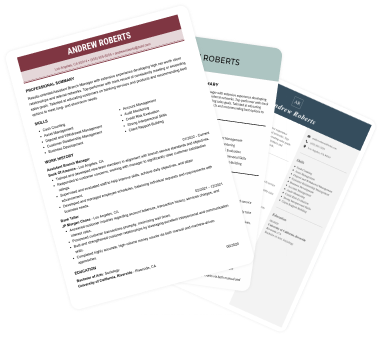Create a professional CV now!
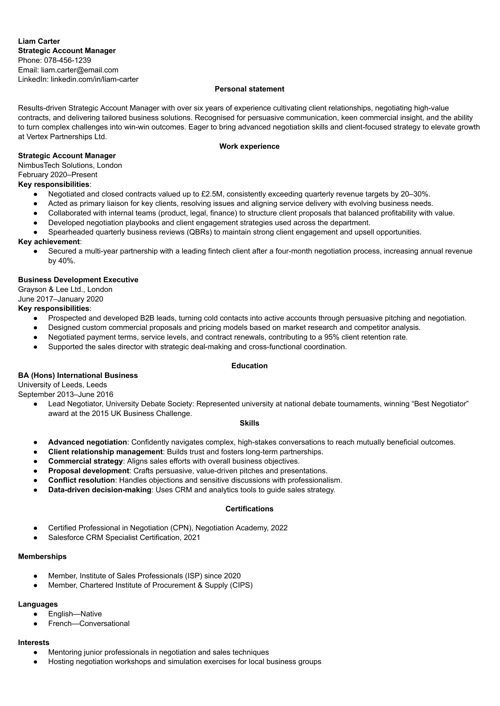 NO
NO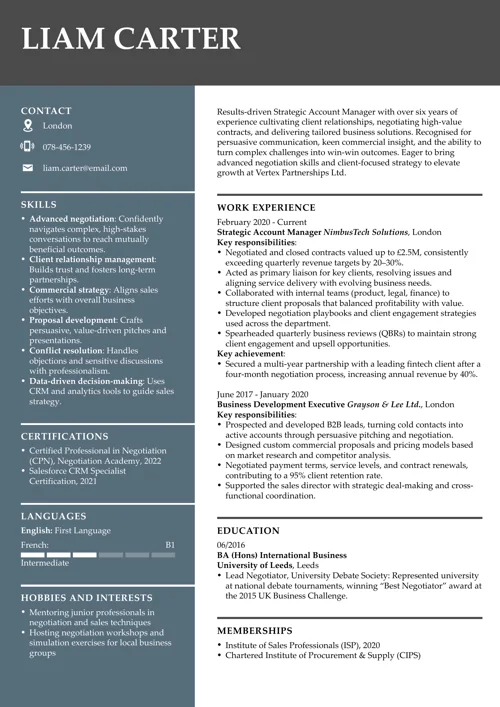 YES
YESLast updated on 29 December, 2025
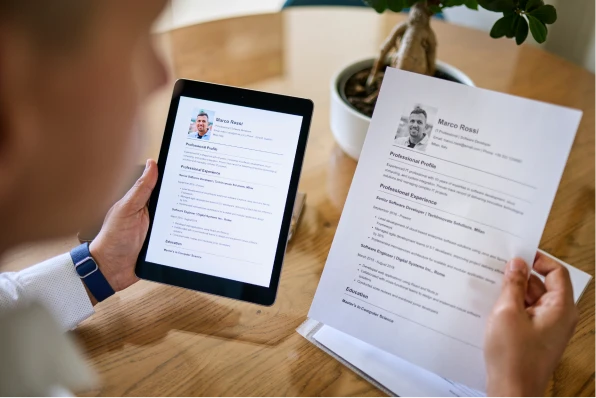
Our customers have been hired by*:
Being great at negotiation isn’t about having the loudest voice or the sharpest elbows—it’s about finding common ground, reading the room, and knowing exactly when to push or pull back. Whether you're securing a raise, closing a sale, or resolving a conflict, negotiation skills can make or break the outcome.
In today’s collaborative workplaces, negotiation is less about confrontation and more about strategy, empathy, and confidence. In this guide, I’ll explain what negotiation skills really involve, describe different types, and show you how to highlight them on your CV.
Create an effective CV in minutes. Choose a professional CV template and fill in every section of your CV in a flash using ready-made content and expert tips.
Create a professional CV now!
 NO
NO YES
YESWe created the sample on the left using our builder. See other good CV examples like this one.
Looking for other skills guides? Check these out:
Negotiation skills are the ability to reach mutually beneficial agreements through communication, persuasion, and strategic thinking. These skills are very important in the workplace as they help resolve conflicts, secure favourable outcomes, and maintain strong professional relationships. Negotiation skills include active listening, emotional intelligence, problem-solving, and the ability to influence others effectively.
In a work environment, strong negotiation skills can lead to better deals, improved collaboration, and reduced misunderstandings. They are especially valuable in roles like sales, procurement, management, and client relations, where finding common ground is essential. Whether you're closing a contract, discussing project timelines, or balancing team dynamics, negotiation skills enable you to advocate for your interests while fostering positive relationships.
Below, you'll find a list of key negotiation skills examples that can enhance your performance in various roles and working environments.
Active listening involves fully concentrating, understanding, and responding to what the other side is saying. It’s when you don’t interrupt or make assumptions; you’re just present and open to hear someone else’s point of view. This skill helps you grasp the true motivations and concerns behind a person’s words, making negotiation more informed and empathetic. It also encourages respect and openness, both of which are essential for building trust.
Emotional intelligence is the ability to recognise, understand, and manage your own emotions while also being sensitive to the emotions of others. In negotiation, high emotional intelligence helps you stay calm under pressure, read the room, and adjust your tone or approach. It also enables you to deal with sensitive topics the way it doesn’t escalate the conflict.
Persuasion is the art of influencing others to agree with your point of view or proposal without manipulation or pressure. It requires a mix of logical reasoning, emotional appeal, and credibility. Strong persuasion skills help you present your case clearly, anticipate objections, and guide the other side toward agreement in a way that feels collaborative rather than confrontational.
Problem-solving in negotiation involves identifying underlying issues, evaluating possible solutions, and working collaboratively to reach an agreement that satisfies both sides. A good negotiator sees beyond surface-level disagreements and strives to create win-win outcomes by addressing the root of the problem rather than just the symptoms.
Effective preparation is crucial for successful negotiations. It involves understanding your goals, limits, and the other party's priorities. When you know your ideal outcome, walk-away point, and potential concessions, you enter the negotiation with confidence and a clear strategy for success.
A strong CV summary will convince the recruiter you’re the perfect candidate. Save time and choose a ready-made personal statement written by career experts and adjust it to your needs in the LiveCareer CV builder.
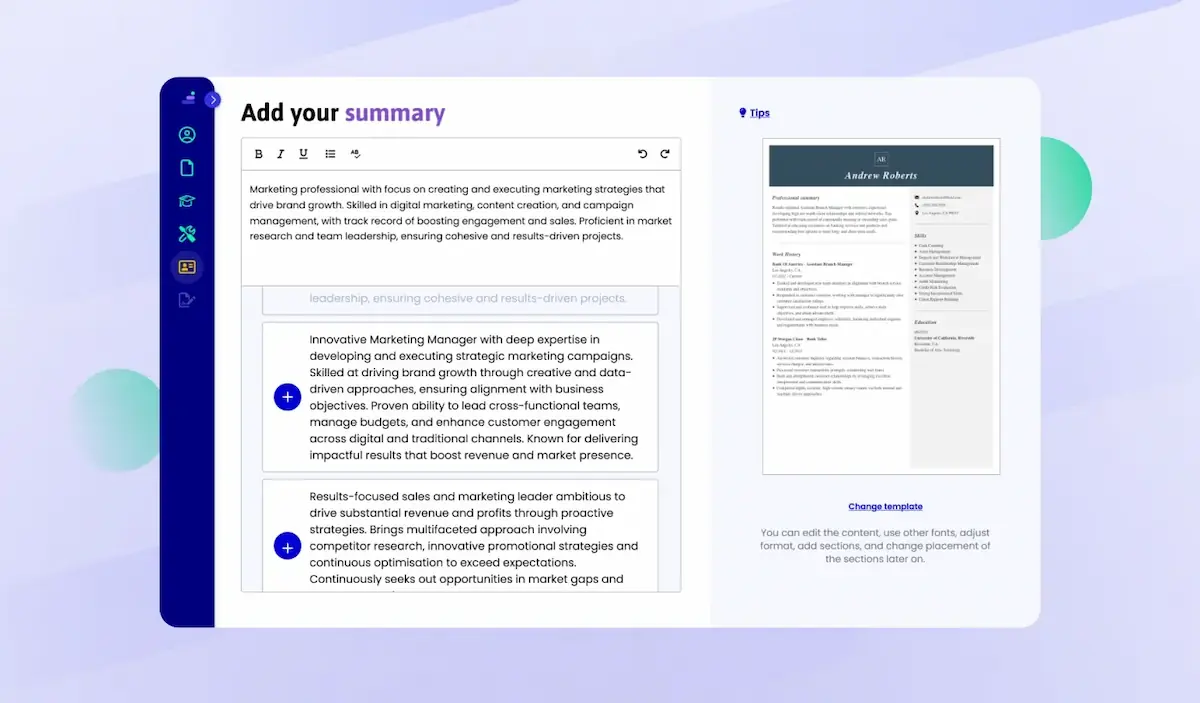
Clear, concise, and confident verbal communication is key in negotiation. You need to be able to articulate your needs, clarify your position, and respond to counterarguments persuasively. Strong communicators can express complex ideas in a way that’s easy to understand and use tone and language that foster cooperation rather than tension.
Non-verbal cues like eye contact, posture, facial expressions, and gestures can greatly impact how your message is received. Being aware of your body language and interpreting the non-verbal signals of others helps you gauge reactions and adjust your approach in real time. It also reflects credibility and confidence in what you're saying.
Assertiveness is the ability to advocate for your interests in a direct, honest, and respectful way. Unlike rudeness, assertiveness is about maintaining your boundaries while remaining open to compromise. It ensures your voice is heard without overpowering others, which is crucial in reaching agreements.
Patience allows negotiators to give the process the time it needs, rather than rushing to a conclusion. Taking time to listen, think strategically, and wait for the right moment to make a move often leads to better, more sustainable outcomes. Impatience can lead to concessions you later regret or missed opportunities for better terms.
No negotiation ever goes exactly as planned, and that’s why adaptability is essential. Being flexible means adjusting your tactics, tone, or goals based on new information or changing dynamics. Adaptable negotiators can shift tactics easily and remain effective even in unpredictable or highly stressful environments.
Now that you're familiar with the key negotiation skills, let's explore practical ways to enhance them—helping you become a more effective and valued contributor to your team and employer.
Before entering any negotiation, be clear about what you want to achieve. Define the outcome you need, consider acceptable compromises, and select non-negotiables. Clear goals provide direction and allow you to stay focused during discussions, reducing the risk of making hasty or unfavourable decisions.
Successful negotiation starts well before the conversation. Research the other party’s interests, industry, and potential objections. The better prepared you are, the more confident and credible you'll appear—and then, the more likely you are to reach a satisfying agreement.
One of the most overlooked skills in negotiation is listening. Pay close attention to what the other party says (and doesn’t say). This allows you to understand their priorities and respond with tailored solutions, increasing the chances of mutual agreement.
Rehearsing negotiation conversations with a colleague or mentor can improve your confidence and refine your responses. Practice handling objections, asking clarifying questions, and presenting your points persuasively in a low-stakes setting before going into real discussions.
Being aware of emotions (yours and others’) helps you respond calmly, manage tension, and build trust. Work on identifying emotional triggers and developing self-regulation techniques, such as deep breathing or pausing before reacting, to stay composed under pressure.
Not all negotiations will go smoothly. It's important for you to practice techniques that help de-escalate tension, like staying neutral, focusing on common ground, and avoiding personal language. Effectively managing conflict will help you keep conversations productive and solution-focused.
Confidence plays a big role in how you’re perceived during negotiations. Prepare talking points, reflect on past successes, and remind yourself of your value. Speaking with clarity and certainty helps others take your position seriously.
One of the strongest positions in a negotiation is knowing you have other options. Understand your BATNA (Best Alternative to a Negotiated Agreement) so you’re not pressured into accepting unfavourable terms. Sometimes, walking away is the smartest move.
Observe experienced negotiators, whether through books, podcasts, or real-life mentors. Pay attention to how they ask questions, present offers, and remain calm. Learning from others can give you new techniques and perspectives to apply in your style.
After every negotiation, take time to evaluate what went well and what could be improved. Did you reach your goals? Were there moments you felt stuck? Ongoing reflection helps you sharpen your skills and approach each new negotiation with greater insight.
In the workplace, negotiation skills help individuals reach agreements, resolve conflicts, and build stronger professional relationships. Whether you're discussing project timelines, setting terms with a client, or fixing workplace disagreements, effective negotiation leads to better outcomes for everyone who is involved.
Strong negotiators contribute to smoother collaboration, reduced tension, and more balanced decision-making. These skills also support business goals by helping teams secure better deals, manage expectations, and protect the organisation’s interests. From sales and procurement to leadership and HR, negotiation plays a key role in achieving mutual success and maintaining a positive working environment.
Negotiation skills are important in almost every role, from entry-level positions to senior management. Highlighting these skills on your CV shows you’re able to manage conflicts, build strong relationships, and contribute to the overall success of the team. It makes you a more appealing candidate, showing that you're prepared to navigate both everyday discussions and high-stakes negotiations.
Here’s how to include negotiation skills in a CV:
Your CV profile is where you can demonstrate your negotiation abilities right at the start. Whether you're negotiating contracts, managing client expectations, or resolving internal disputes, highlighting your negotiation skills can demonstrate that you're a strong communicator and a problem solver. Here's an example of how to do this:
Negotiation skills examples in the CV summary
Results-driven Strategic Account Manager with over six years of experience cultivating client relationships, negotiating high-value contracts, and delivering tailored business solutions. Recognised for persuasive communication, keen commercial insight, and the ability to turn complex challenges into win-win outcomes. Eager to bring advanced negotiation skills and client-focused strategy to elevate growth at Vertex Partnerships Ltd.
In the work experience section, your negotiation skills should take centre stage. Employers want to see real examples where you’ve negotiated deals, resolved conflicts, or reached agreements that helped your team or business succeed. To make this section impactful:
Job description with conflict resolution skills
Strategic Account Manager
NimbusTech Solutions, London
February 2020–Present
Key responsibilities:
Key achievement:
You don’t have to be a CV writing expert. In the LiveCareer CV builder you’ll find ready-made content for every industry and position, which you can then add with a single click.

If you’re just starting your career or don’t have much professional experience yet, you can still highlight your negotiation skills in your education section. Mention any coursework, group projects, or extracurricular activities where you practiced or developed these skills. For example, courses that involved group negotiations, team collaboration, or conflict resolution can demonstrate your foundation in negotiation techniques.
Examples of negotiation skills in the education section
BA (Hons) International Business
University of Leeds, Leeds
September 2013–June 2016
Your CV's skills section should specifically highlight the negotiation skills that align with the role you're applying for. Don’t just list generic skills; be sure to tailor them to the job description. Here’s how you can strengthen your skills section:
Negotiation skills examples in the skills section
Adding extra sections to your CV can help you stand out by showcasing other strengths that complement your negotiation skills. These sections could also demonstrate how your negotiation skills play a role outside of formal discussions. Some ideas to enhance your CV:
Examples of negotiation skills in the extra sections
Certifications
Memberships
Languages
Interests
A strong CV will feature real examples from your work experience where you’ve successfully negotiated, resolved conflicts, or achieved mutually beneficial agreements. Tailoring your CV to highlight these specific skills will show employers that you’re equipped to manage negotiations in diverse situations.
A tailored, well-written cover letter offers another chance to emphasise these strengths, showing how you can bring structure and efficiency to the role. Even with the rise of digital applications, most HR professionals still believe a strong cover letter is key to landing an interview.
Assuming your CV has already highlighted your negotiation skills, the interview is your chance to bring them to life. Focus on real examples where you've successfully handled challenging conversations, secured better outcomes, or helped resolve a conflict. You might be asked about a time you negotiated with a client, settled a team disagreement, or found a compromise under pressure, so be ready to share clear, detailed stories.
Use the STAR method (Situation, Task, Action, Result) to structure your answers. Explain the context, what was at stake, what you did, and how it turned out. You can also mention any strategies or techniques you used, such as active listening, finding shared interests, or staying calm in tense moments. Highlight your ability to think on your feet and adjust your approach when needed. If you’ve received positive feedback or seen measurable results from your negotiation efforts, be sure to mention those too—they’ll help show just how effective you are when it counts.
A cover letter alone simply won’t be enough—you need an impactful CV, too. Create your CV in minutes. Just follow our wizard and fill in every CV section with ready-made content. Get started by choosing a professional CV template.
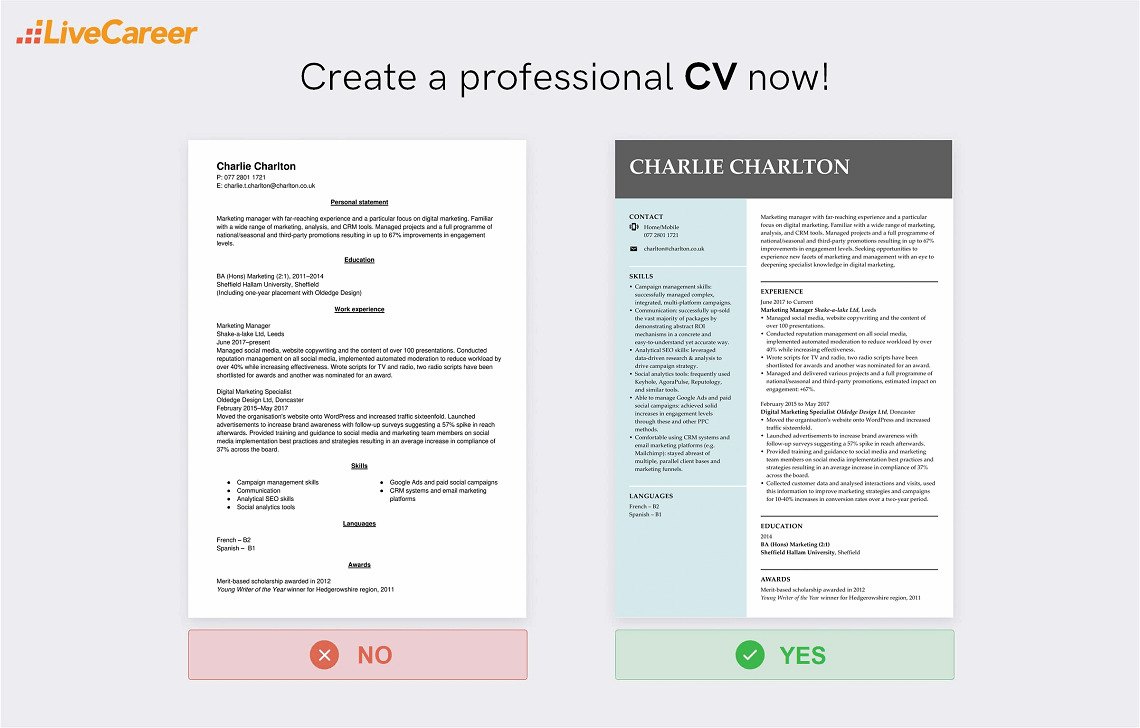
Thanks for reading! If you're still unsure how to highlight your negotiation skills or need guidance on incorporating them into your CV, feel free to reach out in the comments. We're here to assist you.
Our editorial team has reviewed this article for compliance with Livecareer’s editorial guidelines. It’s to ensure that our expert advice and recommendations are consistent across all our career guides and align with current CV and cover letter writing standards and trends. We’re trusted by over 10 million job seekers, supporting them on their way to finding their dream job. Each article is preceded by research and scrutiny to ensure our content responds to current market trends and demand.
Category: CV Help
Crafting a job-winning CV is all about showcasing your unique skills and experiences. Start with a strong personal statement that highlights your career goals and achievements.
Try Our CV Builder Now